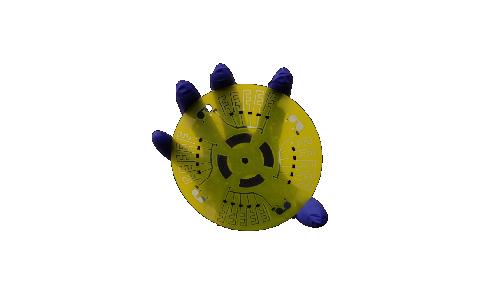A Small Portable, Cost-effective System for Ultrafast Genotyping Seminar

- Time:
- 15:00 - 16:00
- Date:
- 16 October 2019
- Venue:
- 27/2001
For more information regarding this seminar, please email Prof. Marcel Utz at Marcel.Utz@soton.ac.uk .
Event details
A Chemistry seminar
Over the last decade, there has been an ever-increasing interest in, and exponential growth of, microfluidic sample-to-result systems for biochemical analysis. In 2006, we developed a crude glass microchip for the detection of B. anthracis in mouse blood and B. pertussis in a human nasopharyngeal swabs, with a sub-30 minute analytical time for sample prep (DNA extraction/amplification) and analysis (electrophoresis-fluorescence detection).
Over the next decade, we refined the microfluidic device architecture, the unit operations (aliquoting, mixing, heating, diluting) needed for automated analysis, and the hardware required for portable fully-integrated DNA analysis. We applied this to the ‘Rapid DNA’ sector where fully-automated swab-to-STR profiling was needed for human identification. The 'faSTR DNA Profiling' system allows for microfluidic DNA extraction and PCR amplification, followed by chip-based DNA capillary electrophoresis with multicolor fluorescence detection, generating a DNA fingerprint rapidly by unskilled personnel. To minimize instrument size and weight, and to simplify the complexity of the microfluidic architecture, the faSTR DNA Profiling system leverages centrifugal force to move small volumes of fluid by spinning the microdevice, and exploits a new fabrication approach for cost-effective microfluidic consumable discs.
Together, these combine to create a system that is small (<9600 cu cm), light (4.5 kg) and capable of generating a DNA profile in ~30-40 minutes. While the faSTR DNA Profiling system shows promise for utility in the the criminal justice sector, it has excellent potential for widespread adoption in clinical medicine. Discussion of the forensic applications for this next generation rapid DNA system will be followed by initial results on extrapolating the technology to 'in-home' monitoring of immune tolerance after organ transplant and the potential for pharmacogenomic analysis.
1) PNAS 103(51):19272, 2006. 2) Nature Protocols 10(6):875-86, 2015
Speaker information
Prof. James P. Landers, Depts. of Chemistry, Mechanical Engineering, and Pathology University of Virginia. A Commonwealth Professor of Chemistry, Professor of Mechanical Engineering at the University of Virginia, an Associate Professor of Pathology at the University of Virginia Health System, and a Jefferson Scholar Faculty Fellow. James received Bachelor of Science and PhD degrees in Biochemistry/Biomedicine at the University of Guelph in Ontario (Canada). He did a post-doctoral fellowship at the University of Toronto School of Medicine before taking on a Medical Research Council (Canada) Fellowship to explore cancer bio- logy at the Mayo Clinic. While at Mayo, he launched and directed the Clinical Capillary Electrophoresis Facility in Laboratory Medicine and Pathology developing clinical assays using capillary electrophoretic technology. He began development of a microfluidics research program as an Analytical Chemistry Professor at the University of Pittsburgh with the development of analytical microfluidic systems for next generation molecular diagnostics. He has published more than 250 papers in peer-reviewed journals, 22 book chapters and edited three editions of the CRC Press Handbook of Capillary & Microchip Electrophoresis & Associated Microtechniques. Development of one of the first sample in-answer out microdevices for genetic analysis by his group led to the 2008 Association for Lab Automation ‘Innovative Technology of the Year’ Award’ based on the milestone publication in PNAS in 2006. This led to funding from the DOD to develop a semi-rugged portable genetic analyzer for human identification. He is currently the Microfluidics Editor for Analytica Chimica Acta, and the founder and CSO for MicroGEM, a start-up company based in Virginia and New Zealand.